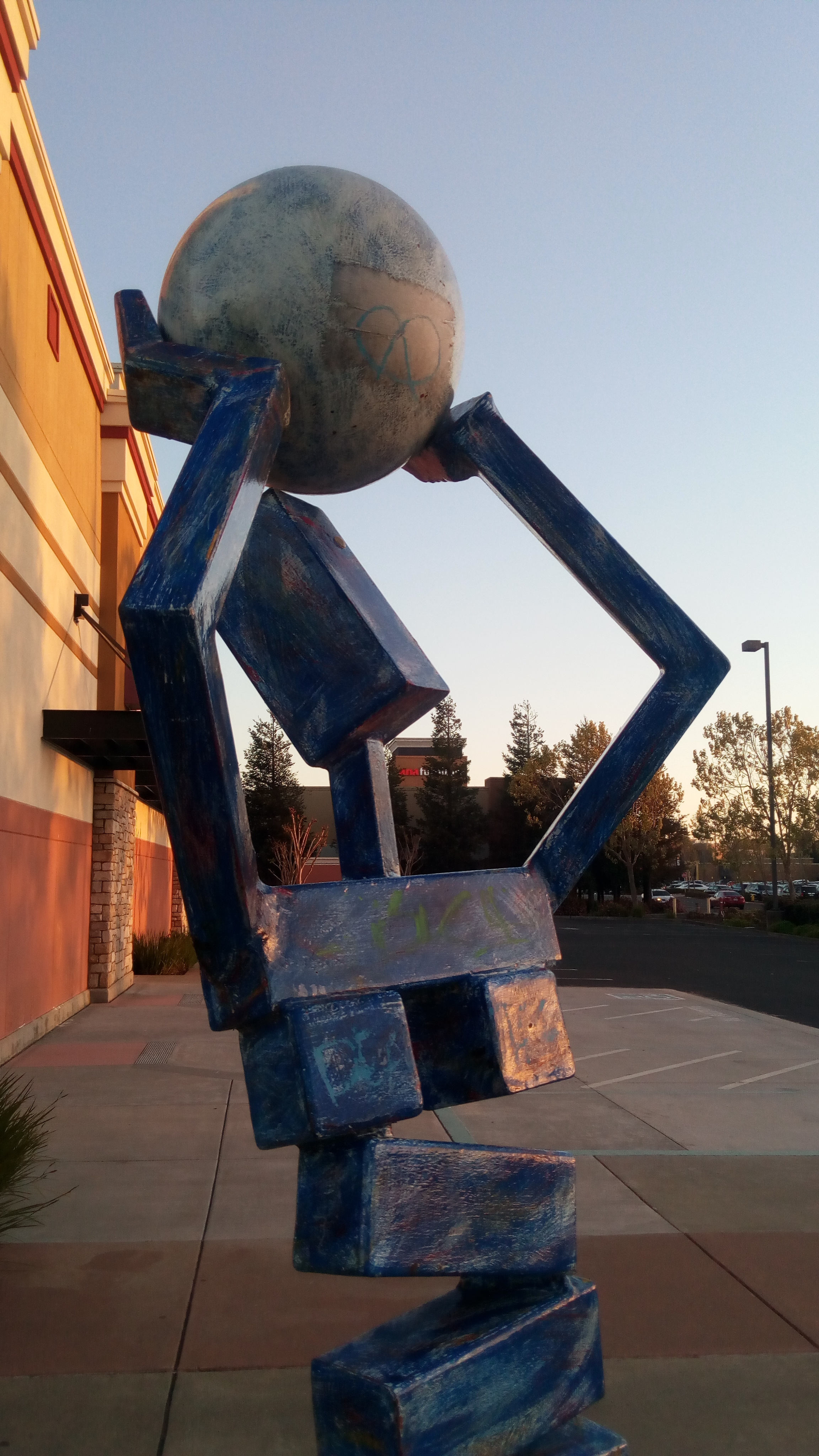I call the search engine Fact Checker because it is generally reliable and quick at producing answers to questions. The information needs to be screened for how credible the sources of the information and how prevalent – the weight of evidence – in support of the answer. Odd phrases or terms can be easier to find then words that have a variety of meanings or are also used for businesses. Search results can become to numerous to sort through occasionally.
Research into how having instant answers available to us may affect us suggests that it may leave the user with a better impression of their own intelligence even though it was the quick access to what is essentially an encyclopedia or a dictionary with a search feature. See this article and podcast interview for more information: How Search Engines Make Us Feel Smarter than We Really Are. (2015).
Fact Checker – the search engine provides answers but it is up to the reader to evaluate the sources for accuracy/reliability and it is up to the reader to remember the information for future use or bookmark the source/file the information in a way that can be accessed again if long term learning or ability to use the information in the long term is to occur.
My blog is my personal notebook with a built in search feature. I can store notes with a variety of tags to help me find information that I read years previously. In general it is wonderful compared to older styles of handwritten notes but recording information in some logical way is part of learning – filing the information in the brain in a way that can be accessed again. I have to remember that I read something about such-and-such years ago and that I took notes and filed them under such-and-such a title or with some specific tag.
The search engine is only as useful as the questions you ask it. You have to collate the information for yourself and store it in a way that you will be able to find it again within your own internal memory or in your external memory devices whether handwritten, digitally written, or audio recorded. We all vary somewhat in how well we remember things. I do better with written or visual information then with remembering things I hear while other people may be very good at remembering lectures or lyrics that they hear.
The podcast interview included a brief description of the research study format – participants were told that a more active brain is more intelligent – however that is not what actual brain scans suggest. The person with a more intelligent brain seems to have learned how to conserve energy possibly by having more organized pathways to quickly find information and there is less electrical activity. (The Neuroscience of Intelligence, Richard J. Haier, a book mentioned in a previous post Intelligence and the Weight of Evidence)
The participants (How Search Engines make Us Feel Smarter) took part in several variations of the research design. The experimental group were asked to look up answers to somewhat obscure questions using the internet and the control group were given the answers. In some variations of the basic experimental design the experimental group obtained search results that included accurate answers to the questions, in other sessions they obtained not very helpful results for the questions, and in other sessions they obtained results that provided inaccurate answers to the questions. In all variations the experimental group afterwards rated their intelligence/ability to answer other questions more positively than the control group who had been given answers. The research author made clear that this doesn’t mean the internet is making us stupider, just that it may give us a false impression of our intelligence.
To me the results suggest that we feel more intelligent when we try to solve problems for ourselves rather than when we are provided answers, and having asked questions and read answers, we may have learned something if we remember the answer and have improved our ability to evaluate information for accuracy.
My blog is my notebook, I share a few pages publicly in case the information or ideas or experiences might help someone with their own health or with their research or business. (currently: 197 public/1374 total posts – I love my blog.) Sharing helpful resources and saving the links an ideas for my own use in the future are goals. Putting together information that I learn today with information that I learned years ago often requires finding the link from years ago to review for more detail.
Evaluating project goals and improving how we learn as individuals or as teams includes reviewing how we do things – or learning and trying methods used by others.
A software design consultant has shared a series of posts on strategies to help small groups evaluate project goals and team communication issues. The series might be helpful for individuals and teams in other industries in addition to software development: Design Thinking Toolkit, Introduction What is Design Thinking?; Activity 13 – Hopes & Fears, by Kimberly Wolting, spin.atomicobject.com.
This book, mentioned in a previous post, is also helpful for improving decision making strategies:
For more information on thinking creatively and effectively working towards a better solution to difficult decisions rather than feeling forced to choose one of two less preferred choices I recommend the book Creating Great Choices: A Leader’s Guide to Integrative Thinking, by Jennifer Riel and Roger L. Martin (2017, HBR) (hbr.org/Creating Great Choices)
Digital toolkits can contain a variety of software apps and services to help make organizing and sharing information easier, a variety are shared in this helpful list: Resources – Digital Discovery.
Remembering where you filed something in your memory or in a digital or physical filing system can require labeling the items with a tag or variety of tags that you are likely to remember. This post about my nickname for search engines – Fact Checker – was based on a conversation I had online about a trivia fact shared by a space oriented social media comment. The trivia fact – It would take us only an hour to reach space if we were able to drive a car straight up. There were a few questions in response along the lines of “How fast would you have to drive?” or “Really?“
The account hadn’t provided more information and a simple check of the search engine confirmed the factoid – the atmosphere is considered to be about 62 miles/100 kilometers thick, (space.com/Karmin Line), so a car driving 62 miles per hour could reach the edge of outer space – if that was possible, which it isn’t, however as a visual image it does make it easy for me to remember the trivia fact. Our atmosphere is like the thin peel of an orange or apple around the more solid earth. Am I stupid for not having known a basic fact about our planet’s atmosphere? Or am I smart for having access to a search engine in order to look up the fact? Or am I smarter now because I was curious and took the time to find more details about the topic and the visual image (driving a car straight up) linked with the more detailed information (62 miles per hour) turned the fact into something that I am now likely to remember even if I don’t need to know it?
The search engine doesn’t make us smarter or more stupid but using it and storing the information in some sort of memorable way can make us more knowledgeable. Putting information together in useful ways is applying knowledge. Air pollution and weather is part of our atmosphere – our thin peel of life-giving oxygen and blanket of radiation-protecting ozone – and we need our atmosphere for our survival so we should protect it.
These are facts that I am trusting the source to provide accurately. It is not information that I obtained through direct measurements of my own – that would be a type of direct research that is independent, and which might provide results that agree or disagree with the information other researchers found by their methods of measurement or mathematical analysis. Fact Checker found a fact for me and I evaluated the source as being fairly trustworthy but I didn’t do any independent research to confirm the reliability of the fact. The Internet can be a very fast encyclopedia and dictionary but the results may vary in reliability. Science also varies somewhat though as our methods of measurement and mathematical analysis improve we may get slightly or very different results from past answers, aka “facts.”
The concept of “weight of evidence” brought up by Haier in his book The Neuroscience of Intelligence is the important point to remember when looking up information online. I tend to skim through all of the results on the first page, and occasionally the first few pages, of search results in order to get a rough overview – what does the consensus of results suggest?
(More trivia about our planet – the planet is about 8000 miles wide (12,800 kilometers) if we could dig a hole from one side straight through to the other side. The crust, the solid part made of rock and soil, is about 1802 miles/2900 kilometers wide, and the interior molten core is 4349 miles/7000 kilometers wide – visual, picture a Tootsie Pop type lollipop with a crunchy exterior around a soft caramel interior. (livescience.com) (1 mile = 1.60934 kilometers, 1 kilometer = .62 miles))
Learning is fun – in my opinion.

Disclaimer: Opinions are my own and the information is provided for educational purposes within the guidelines of fair use. While I am a Registered Dietitian this information is not intended to provide individual health guidance. Please see a health professional for individual health care purposes.
